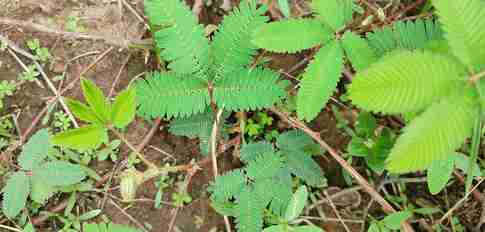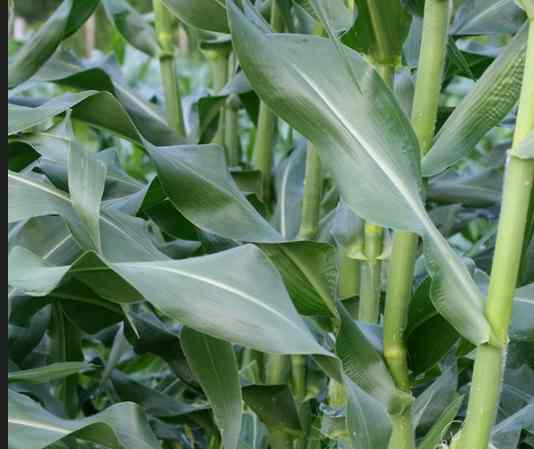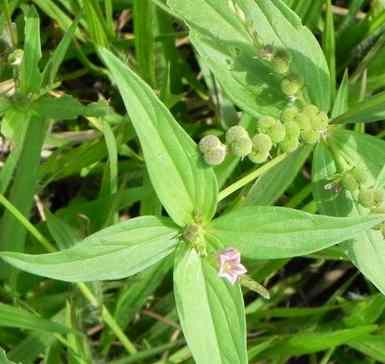
support@yorubalibrary.com
+2348073529208, 07038599574

Ewe patonmo (Also called Ewe Padimo) is very popular and common in different areas of Yoruba Land. It is a small but spiritually powerful plant known scientifically as Biophytum apodiscias. Despite its humble size, this plant carries pure symbolic and healing characteristics and properties.
The name “Ewe Patonmo” in Yoruba comes from the plant's unique characteristic of closing its leaves when touched or disturbed, symbolizing sensitivity, secrecy, and defense. It is often used in rituals, protective charms, and medicine for strengthening inner resilience. Traditional healers consider it sacred and powerful, especially in protective mixtures for children, pregnant women, and those facing spiritual affliction.
Key Facts
Category: Leaf
Botanical Name: Biophytum apodiscias
Common Name: Little Tree Plant / Sensitive Plant
Yoruba name: Ewe Patonmo or Ewe Padimo
Igbo Name: Nil
Hausa Name: Nil
Characteristics of Ewe Patonmo
• Plant Type: Small, erect herb that resembles a miniature palm tree.
• Leaves: Compound leaves arranged like an umbrella that fold up quickly when touched or at night.
• Flowers: Tiny, yellow or pinkish blooms; grows from a central rosette.
• Roots: Shallow but fibrous and powerful in herbal use.
• Habitat: Found in moist soils, farmlands, and under shade in forests and home gardens.
Traditional Uses in Yoruba Medicine
1. Spiritual Protection and Defense
Ewe Patonmo is cherished for its protective energy. It is used in rituals and herbal baths to ward off witchcraft, evil eyes (oju burúkú), and spiritual attacks.
2. Fertility and Reproductive Strength
Mixtures made from the root and leaf are given to women facing difficulties in conception. It is also part of agbo used to strengthen the womb.
3. Fevers and Malaria
The leaf is boiled into a tea to reduce high fevers, relieve symptoms of malaria, and boost the immune system.
4. Children’s Herbal Protection
Leaves are used in herbal body rubs and baths for infants and toddlers to prevent frequent crying, spiritual fright, and nighttime disturbances.
5. Strengthening Personal Aura and Charisma
Used by traditionalists and spiritualists to increase inner power, boost presence, and attract positive energy during spiritual assignments or confrontations.
Want to treat common ailments such as Malaria, Cough, Measles, Typhoid, Pile etc naturally without spending much? Grab a copy of Authentic Herbal Solutions: 15 Common Ailments & Their Natural Cures. A practical eBook recommended for everyone regardless of tribe, religion or association. Order below or Download sample here
AUTHENTIC HERBAL SOLUTION #4KOne Yoruba proverb says "Bí olóde ò kú, òde rè kì í wu Gbégi". Do you know that Gbégi is actually a leaf/plant? Get Yoruba Proverbs on Plants and Herbs, which is a collection of Untold Wisdoms Hidden in Leaf and plants comprising their Life Applications & Moral Teachings. Order below or download sample here
YORUBA PROVERBS ON PLANTS #4KHealing Properties of Ewe Patonmo
• Anti-pyretic: Reduces fever and body temperature.
• Immunostimulant: Enhances the body’s natural defense system.
• Fertility Booster: Supports reproductive organs and strengthens ovulation in women.
• Spiritual Fortifier: Builds up emotional resilience and spiritual protection.
• Calming Agent: Soothes restlessness in children and adults experiencing spiritual unease.
Functions in Yoruba Traditional Medicine
• Added to omi-ero (spiritual water) for cleansing and fortification.
• Used in ọṣẹ dúdú (black soap) preparation for protection and aura cleansing.
• Included in charms for those under spiritual attack or facing fear.
• Ground with other herbs to treat “spiritual fever” (iba èmi) that doesn’t respond to conventional remedies.
• Used in fertility baths and herbal steaming for women with reproductive issues.
Conclusion
Ewe Patonmo (Biophytum apodiscias) may appear small and delicate, but its spiritual strength and medicinal value are of great importance in Yoruba tradition.
Have you heard of our Yoruba Herb Dictionary? This contains names of Yoruba Leaf, Roots, Barks, Characteristics, Properties & Identification with HD Pictures. Order below or download sample here
A-Z HERBS & LEAF DICTIONARY #4K
Know more about the Yoruba traditional uses and he…

Learn about Ewe Aran, a potent Yoruba medicinal le…